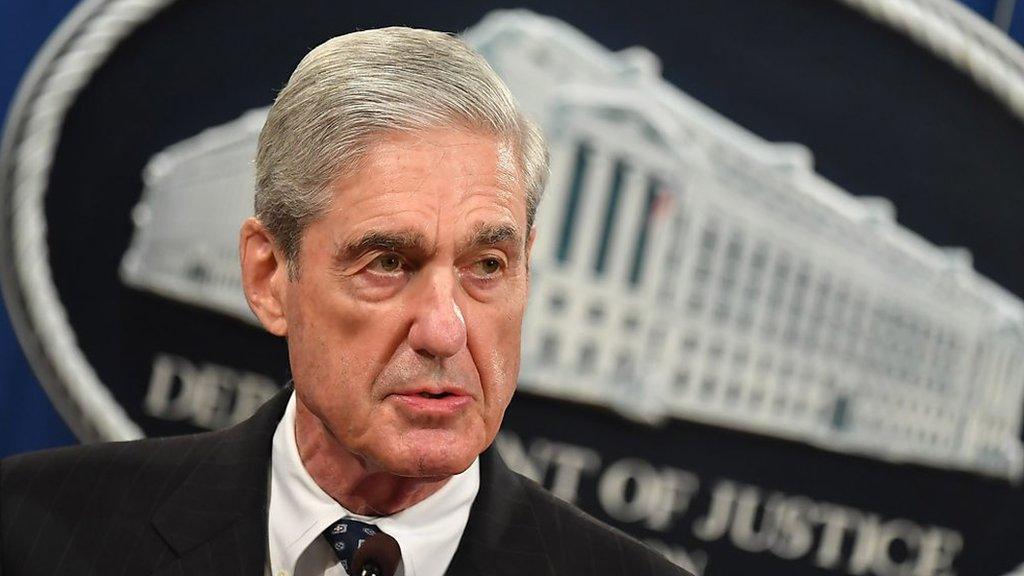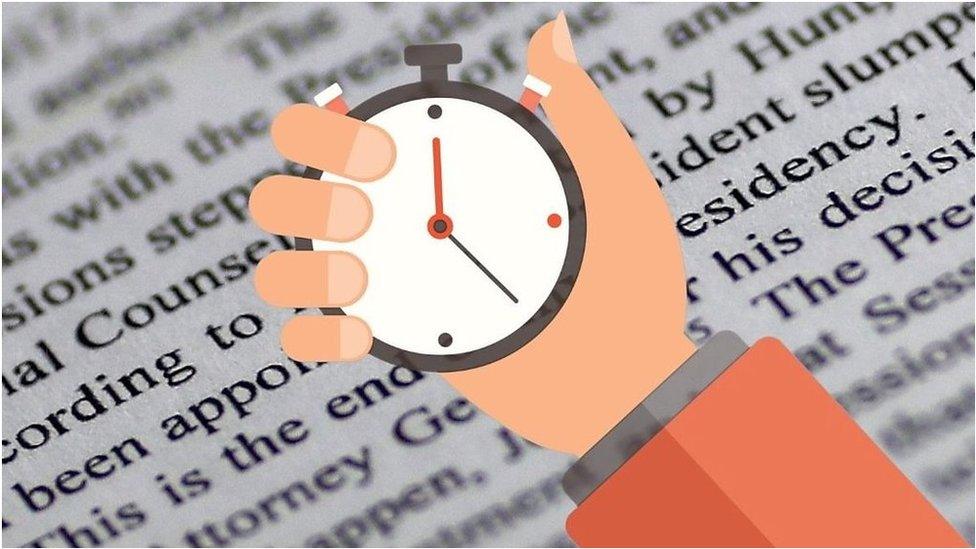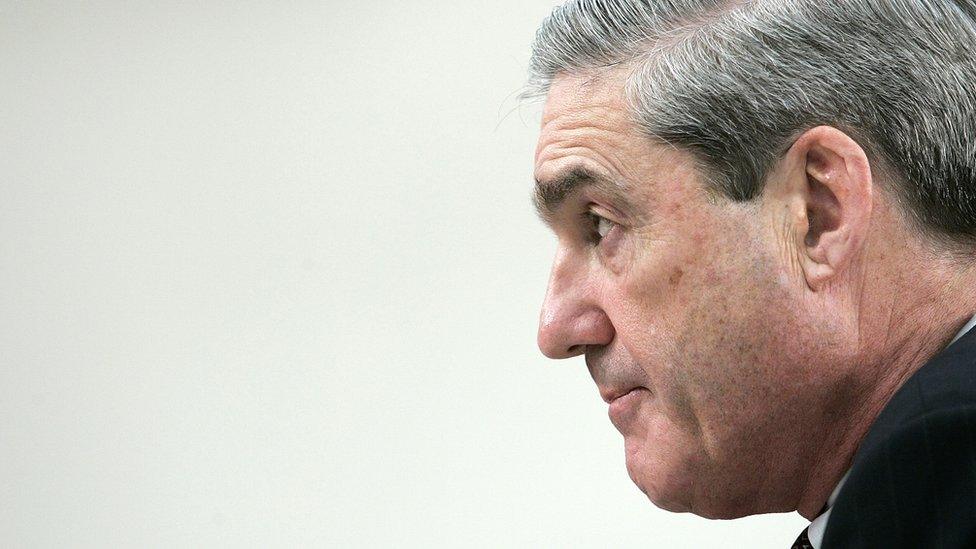Robert Mueller: Charging Trump was not an option
- Published
Robert Mueller: No confidence that there was no crime
US Special Counsel Robert Mueller has said charging President Donald Trump with a crime was not an option, in his first comments on the Russia inquiry.
He reiterated that his report did not exonerate the president and that legal guidelines prevent the indictment of a sitting president.
Mr Mueller did not rule out testifying in Congress but said he would not give information that was not in his report.
Reacting to the remarks, Mr Trump said: "The case is closed! Thank you."
Allow X content?
This article contains content provided by X. We ask for your permission before anything is loaded, as they may be using cookies and other technologies. You may want to read X’s cookie policy, external and privacy policy, external before accepting. To view this content choose ‘accept and continue’.
As special counsel, Mr Mueller was tasked with investigating Russian interference in the 2016 presidential election.
His 448-page report said it had not established that the Trump campaign criminally conspired with Russia to influence the election.
However, it did detail 10 instances where Mr Trump had possibly attempted to impede the investigation.
What did Mueller say?
His statement largely reaffirmed what was in the report released with redactions last month.
He said if his team had had confidence that Mr Trump "clearly did not commit a crime, we would have said so".
Mr Mueller added that "the Constitution requires a process other than the criminal justice system to formally accuse a sitting president of wrongdoing," in what was seen as a reference to the ability of Congress to start an impeachment process.
The Mueller report - in 60 seconds
The special counsel said he did not believe it was "appropriate to speak further" about the investigation and that he would not provide any information that was not in his team's report.
With Democratic lawmakers seeking to have him testify in Congress, Mr Mueller said: "The report is my testimony."
He also announced the formal closure of the special counsel office and his resignation from the justice department to return to private life.

'Read my report'

Robert Mueller didn't break much new ground in his eight-minute statement announcing the official end of the special counsel investigation. Instead, he highlighted in bold what he views as the key points of nearly two years of work.
Mr Mueller started and ended by emphasising that America during the 2016 election was under attack by malign foreign actors. He said those allegations deserve the attention of every American.
In the portion of his investigation into possible ties between Russia and the Trump campaign, Mr Mueller said there was "insufficient evidence to charge a broader conspiracy" - hardly the complete vindication the president asserts.
When it comes to obstruction of justice, he chipped away further at the president's defences. Mr Trump wasn't exonerated, "charging the president" wasn't an option. If Mr Mueller has his way, his role in this drama is at an end. His report speaks for itself, he said, and he wouldn't engage in "conclusions or hypotheticals about the president".
That may not be enough for Democrats in Congress, who still want to question Mr Mueller in person. If Mr Mueller is to be believed, however, all they need to know - all he will offer them - is written in the pages of his report.

What has the reaction been?
Several Democratic lawmakers have called on Congress to act and start impeachment proceedings.
"It is up to Congress to hold this president accountable. We need to start impeachment proceedings," said Senator Kamala Harris, who is running for her party's 2020 presidential nomination.
Senator Cory Booker, also a presidential hopeful, said: "Congress has a legal and moral obligation to begin impeachment proceedings immediately."
Why no charge of obstruction of justice? A law professor breaks down the legal questions
But House Speaker Nancy Pelosi, who has avoided talking about impeachment, said: "The Congress holds sacred its constitutional responsibility to investigate and hold the President accountable for his abuse of power."
House Judiciary Committee Chairman Jerry Nadler said "it falls to Congress to respond to the crimes, lies and other wrongdoings of President Trump - and we will do so."
Representative Doug Collins, the top Republican at the committee, said "relitigating... and reinvestigating the special counsel's findings will only further divide our country," adding that "it is time to move on".
The first Republican congressman to call for Mr Trump's impeachment, Representative Justin Amash, said: "The ball is in our court, Congress."
Meanwhile White House Press Secretary Sarah Sanders said: "After two years, the Special Counsel is moving on with his life, and everyone else should do the same."
- Published29 May 2019

- Published18 April 2019

- Published23 July 2019
